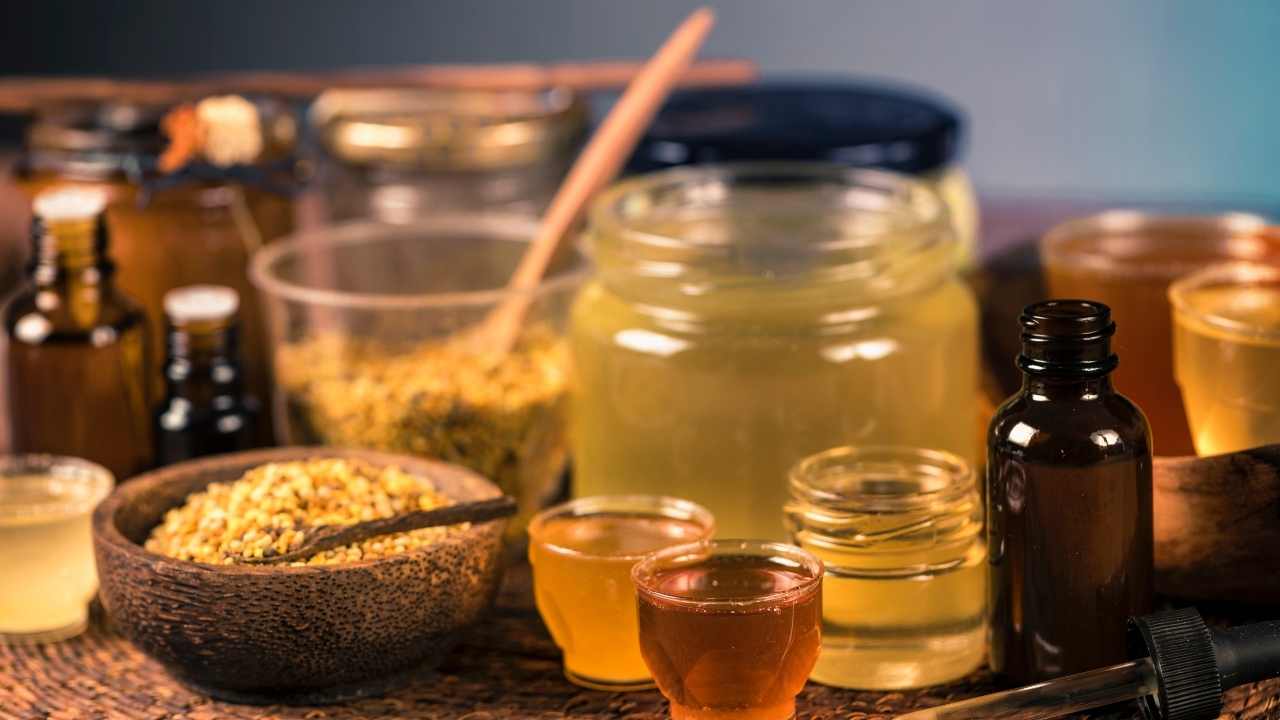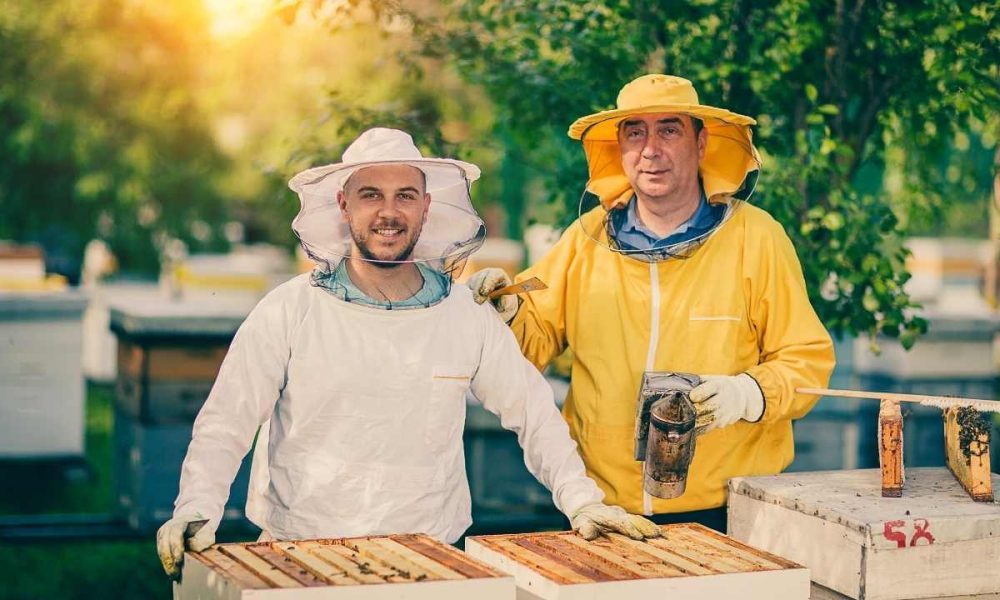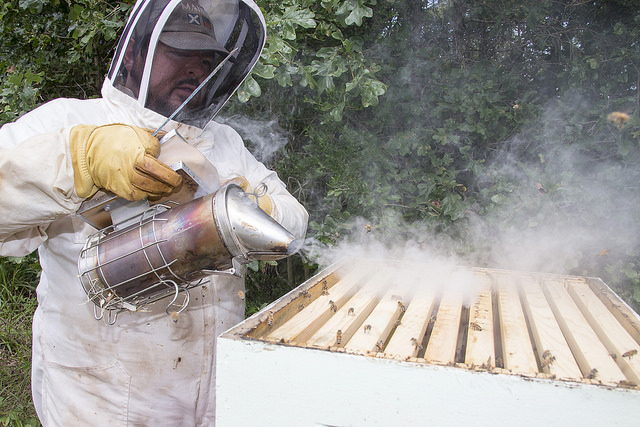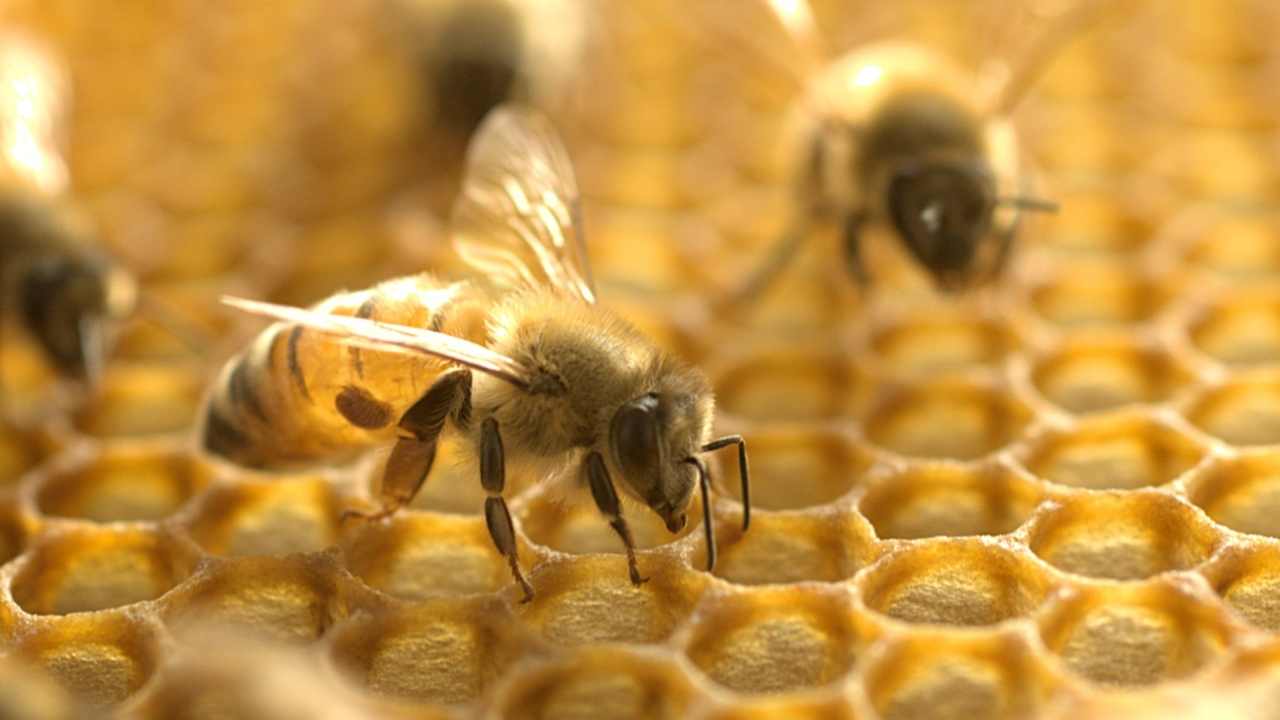
Are you looking for a new hobby that not only relaxes you but also boosts your immune system? Look no further than beekeeping. Yes, you heard it right: beekeeping can provide both mental and physical benefits to its practitioners.
The act of tending to bees and their hives has been found to reduce stress levels and anxiety, leading to an overall improvement in mental health. In addition, the honey produced by the bees is packed with antioxidants and antibacterial properties that can boost your immune system. So why not take up this fascinating hobby and enjoy the sweet rewards of beekeeping?
The Benefits of Beekeeping for Mental Health
Beekeeping has been shown to have a positive impact on mental health, providing opportunities for stress relief and improving overall well-being. As you practice mindfulness while tending to the bees, you become more aware of your surroundings and your own thoughts. This allows you to let go of worries and anxieties that may be weighing you down. The repetitive nature of beekeeping tasks also helps calm the mind and reduce stress levels.
In addition to the mental benefits, beekeeping can also improve physical health. The honey produced by the bees has antibacterial properties that can boost your immune system when consumed regularly. Bee venom therapy is also gaining popularity as a natural treatment for various conditions such as arthritis and multiple sclerosis. With so many benefits from beekeeping, it’s no wonder why it’s becoming increasingly popular among those seeking holistic ways to improve their overall well-being.
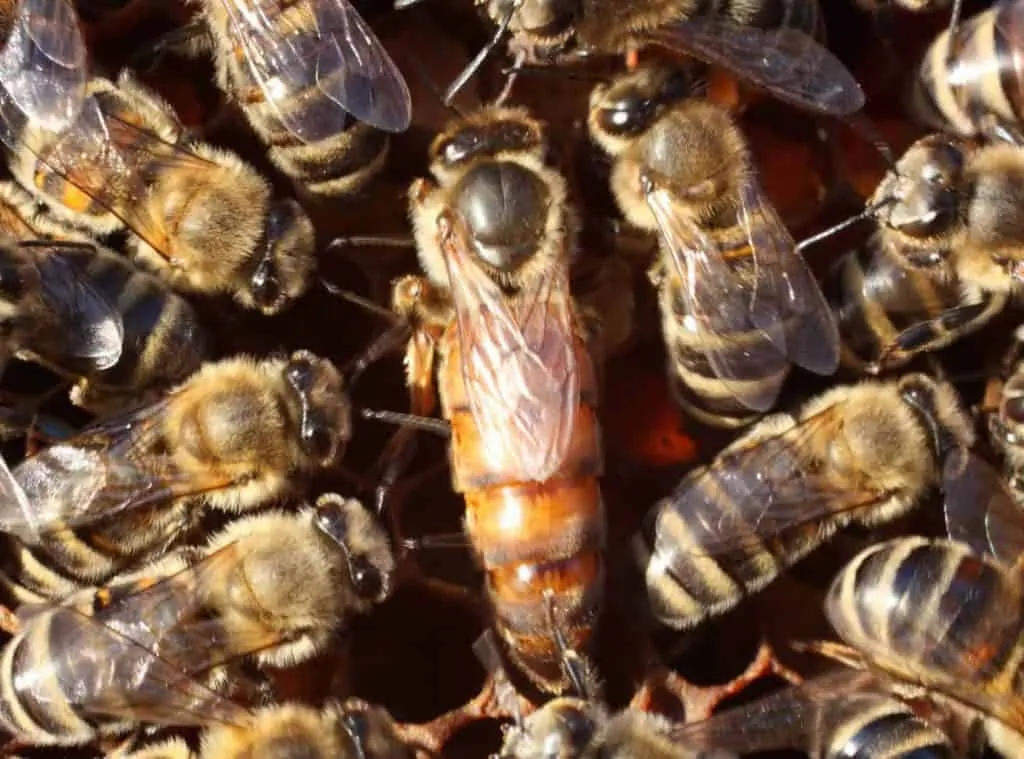
The Physical Benefits of Beekeeping
Engaging in beekeeping can lead to improved physical health, making it a worthwhile activity to consider. One of the most notable benefits is stress reduction. As you tend to your bees and observe their behavior, you become more mindful and present in the moment. This mindfulness helps reduce cortisol levels, which is the hormone responsible for stress.
Moreover, beekeeping has been found to provide allergy relief. Research shows that consuming local honey produced by bees in your area can help alleviate seasonal allergies. By exposing yourself to small amounts of pollen through the honey, you build up immunity over time. In addition, being around bees can also desensitize your body to pollen allergies as well.
As you continue with this hobby, not only will it provide these physical benefits but it will also introduce you to the fascinating world of bees.
The Fascinating World of Bees
You’ll be amazed by the intricate social structure of a bee colony, where each individual bee has its own unique role and works together like a well-oiled machine, much like the gears of a clock. The queen bee is responsible for laying eggs, while drones mate with the queen and worker bees collect nectar to produce honey. But their behavior goes beyond just fulfilling designated roles. Bees have been observed communicating with each other through complex dances that convey information about the location of food sources.
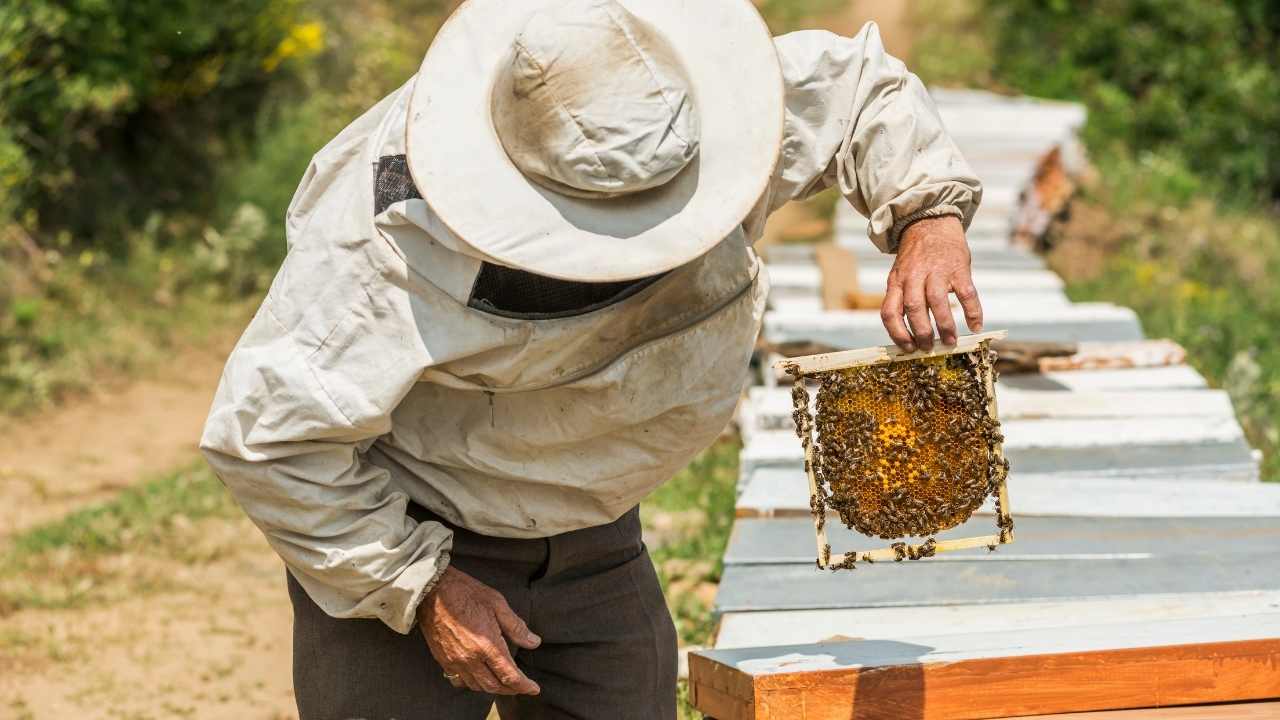
This fascinating world of bees doesn’t just stop at their social structure and communication methods. Honey production is another amazing aspect of these creatures. Worker bees collect nectar from flowers and store it in their stomachs, where enzymes break down the sugars into glucose and fructose. They then regurgitate this mixture into honeycombs where they fan it with their wings until most of the water evaporates, leaving behind thick, sweet honey that can be harvested by beekeepers. With all this knowledge about bees, you may feel eager to start your own colony!
Getting Started in Beekeeping
Get ready to don a protective suit and step into the buzzing world of your very own bee colony, where you’ll witness the intricate dance of these amazing creatures up close. Before diving in, it’s important to choose the right hive for your bees. The two main types are Langstroth hives and top bar hives. Langstroth hives are the most common and consist of rectangular boxes that hold frames for bees to build their honeycomb on. Top bar hives have bars instead of frames and allow bees to build their comb naturally.
Once you’ve chosen your hive, it’s time to gather beekeeping equipment essentials such as a smoker, hive tool, bee brush, gloves, veil, and protective suit. A smoker is used to calm the bees while working in the hive. The hive tool is essential for opening boxes and separating frames. The bee brush gently removes bees from frames without harming them. Gloves protect hands from stings while a veil protects your face from angry bees. A full-body protective suit ensures no exposed skin while working with these fascinating insects. With all this gear in tow, get ready to start caring for your new colony!
Caring for Your Bees
Taking care of your bees involves monitoring their health and behavior closely, as well as implementing sustainable practices to ensure the survival of your colony. One key aspect of beekeeping is queen bee management. The queen is the most important member of the colony, responsible for laying eggs and creating new bees. Regularly checking on her health and replacing her when necessary can help maintain a healthy colony.
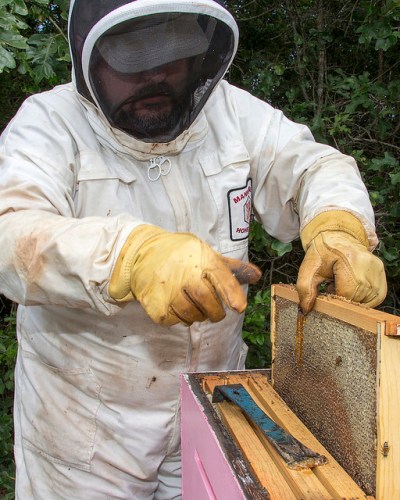
Another crucial aspect of caring for your bees is hive maintenance. This includes regularly cleaning out old comb, ensuring proper ventilation, and providing enough food stores for winter months. It’s also important to monitor for pests and diseases that can harm your colony. By taking these steps to care for your bees, you can create a thriving hive that will provide abundant honey and other benefits. As you become more experienced in beekeeping, you’ll find ways to improve upon these practices and better serve your bees.
By properly caring for your bees through queen bee management and hive maintenance, you’ll be able to enjoy the fruits of your labor – delicious honey! But before we get into harvesting honey, it’s important to understand how bees make this sweet treat and why it’s so beneficial for our health.
Enjoying the Fruits of Your Labor
So, you’ve cared for your bees and watched them thrive. Now it’s time to reap the rewards of all your hard work! Harvesting honey is an exciting process that requires some preparation and careful consideration. But once you have your fresh, delicious honey, you can start incorporating it into your everyday life in a variety of ways. From sweetening tea to using it as a natural remedy for sore throats, the possibilities are endless.
Harvesting Honey
As the bees busily buzzed about their hives, the beekeeper carefully extracted the golden liquid that they had worked so hard to create. Harvesting honey is a crucial step in beekeeping, and having the right equipment can make all the difference. A bee suit, gloves, smoker, and hive tool are essential for protecting yourself from stings and accessing the frames of honey without harming the bees.
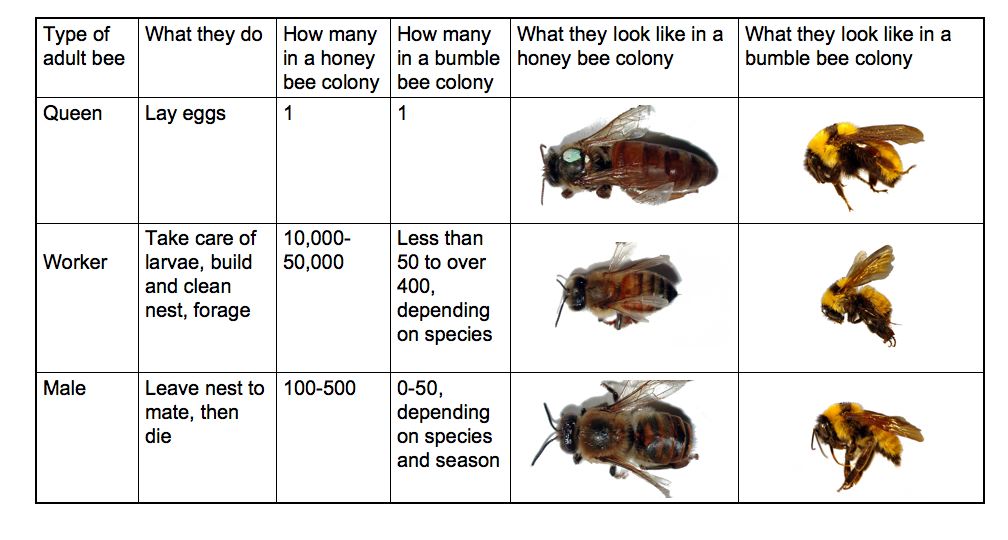
Once you have removed the frames from the hive, it’s time to extract your honey. There are several methods for extracting honey, including using an extractor or crushing and straining with a cheesecloth or nylon bag. Regardless of which method you choose, be sure to remove any debris or wax before storing your pure honey in jars or containers for use later on. With fresh honey at your fingertips, you can incorporate this natural sweetener into your everyday life in countless ways!
Using Honey in Your Everyday Life
Get ready to have your taste buds explode with joy as you discover the endless possibilities of incorporating this liquid gold into every meal and snack imaginable! Honey is not just a sweetener, it’s also a natural antibiotic, antioxidant, and anti-inflammatory agent. You can use honey in your tea or coffee instead of sugar, drizzle it over pancakes or waffles for breakfast, or mix it with peanut butter for a delicious sandwich spread.
Apart from its culinary uses, honey is also great for your skin. It has antibacterial properties that can help fight acne and other skin infections. You can make a simple face mask by mixing honey with yogurt and lemon juice. Apply the mixture to your face and leave it on for 15-20 minutes before rinsing off with warm water. There are many other ways to incorporate honey into your skincare routine such as using it as a lip balm or adding it to your bath water for soft and smooth skin. Try out some honey-based recipes today and see how this versatile ingredient can enhance both your meals and beauty routine!
Frequently Asked Questions
What are the legal regulations for beekeeping in my area?
Before starting your beekeeping hobby, it’s important to know the permit requirements and local restrictions in your area. Many cities and towns have specific regulations regarding the number of hives you can keep, their placement, and distances from neighboring properties. Some areas may also require permits or inspections before allowing you to start keeping bees. It’s important to do your research and follow these regulations to ensure both the safety of yourself and those around you, as well as the health of the bees themselves. By taking the time to learn about these requirements, you can enjoy your beekeeping hobby while remaining a responsible member of your community.
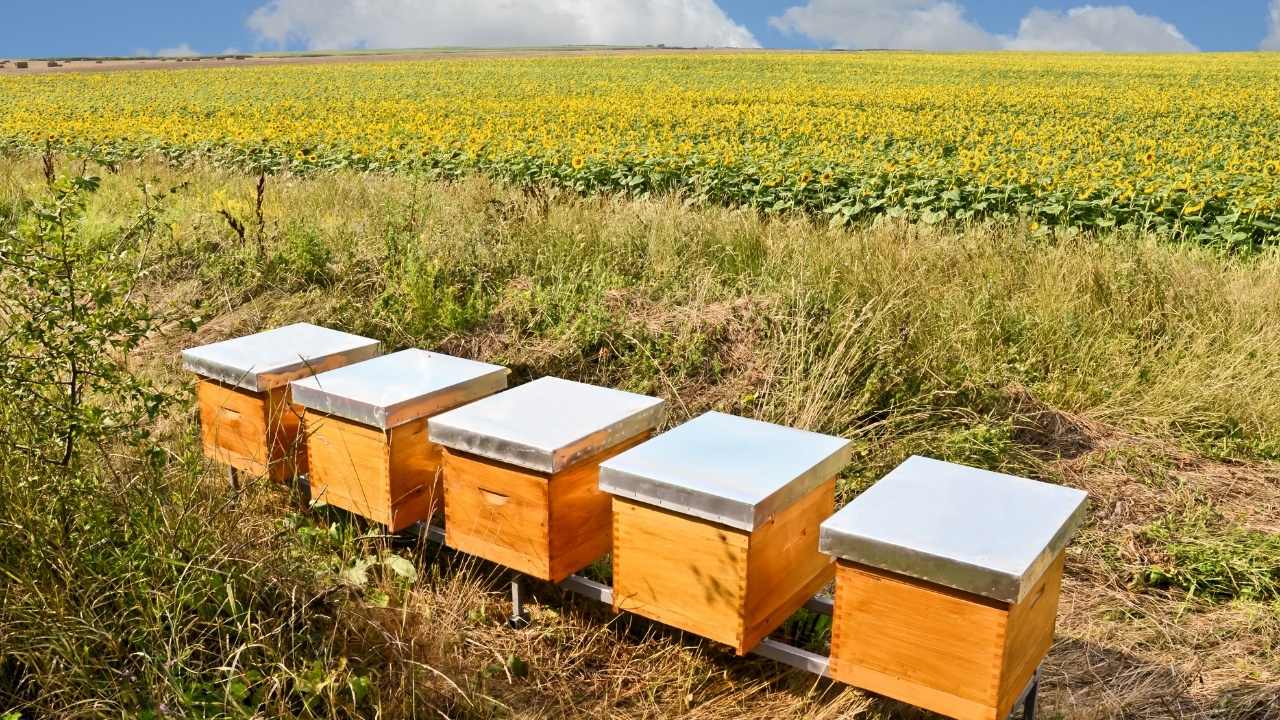
What is the average cost of starting a beekeeping hobby?
Starting a beekeeping hobby can be a fulfilling and rewarding experience, but it’s important to consider the cost of equipment essentials. A basic hive set-up can cost around $300-$400, which includes a hive body, frames, foundation, cover, smoker, and protective gear. However, additional expenses such as honey extraction equipment and hive maintenance tools may also need to be factored in. Finding local mentors is crucial for learning the ins and outs of beekeeping and obtaining guidance on where to purchase affordable equipment. It’s important to remember that starting a beekeeping hobby requires dedication and patience, but with the right resources and support system in place, it can lead to an enjoyable pastime while also serving as an opportunity to contribute positively to your environment.
How do I prevent my bees from swarming?
Do you want to prevent your bees from swarming? It can be a tricky situation, but with proper queen management and colony splitting, it can be done. Queen management is crucial in preventing swarms. You need to make sure that the queen has enough room to lay eggs and that there are no other queens present in the hive. If the queen feels crowded or senses competition from other queens, she may leave with a portion of the colony, resulting in a swarm. Splitting colonies is another effective method of preventing swarms. By dividing a large colony into two smaller ones, you reduce the chances of overcrowding and provide more space for both colonies to thrive. With these methods, you can manage your bees effectively and ensure they remain happy in their hives without causing any disturbances to your neighbors or community.
Can beekeeping be harmful to people with allergies?
If you have allergies, beekeeping can be harmful if proper allergy management is not in place. Bee stings can cause an allergic reaction known as anaphylaxis, which can be life-threatening. However, with the right precautions, beekeeping can still be a fulfilling hobby for those with allergies. Wearing a bee suit and taking antihistamines before tending to your bees are two important steps to reduce the risk of an allergic reaction. It’s also wise to keep emergency medication on hand just in case. With these measures in place, beekeeping can be a safe and enjoyable activity for everyone, including those with allergies.
What is the lifespan of a typical honeybee?
As a beekeeper, it’s important to understand the lifespan of honeybees and their impact on beehive productivity. The average lifespan of a honeybee is typically around 5-6 weeks during the active spring and summer months, while those born in the fall can live up to 8 months. It’s important to note that the queen bee can live for several years as she is responsible for laying eggs, which ultimately leads to an abundant beehive. Understanding the lifecycle of honeybees allows you to optimize your hive management practices and ensure optimal productivity throughout the year.
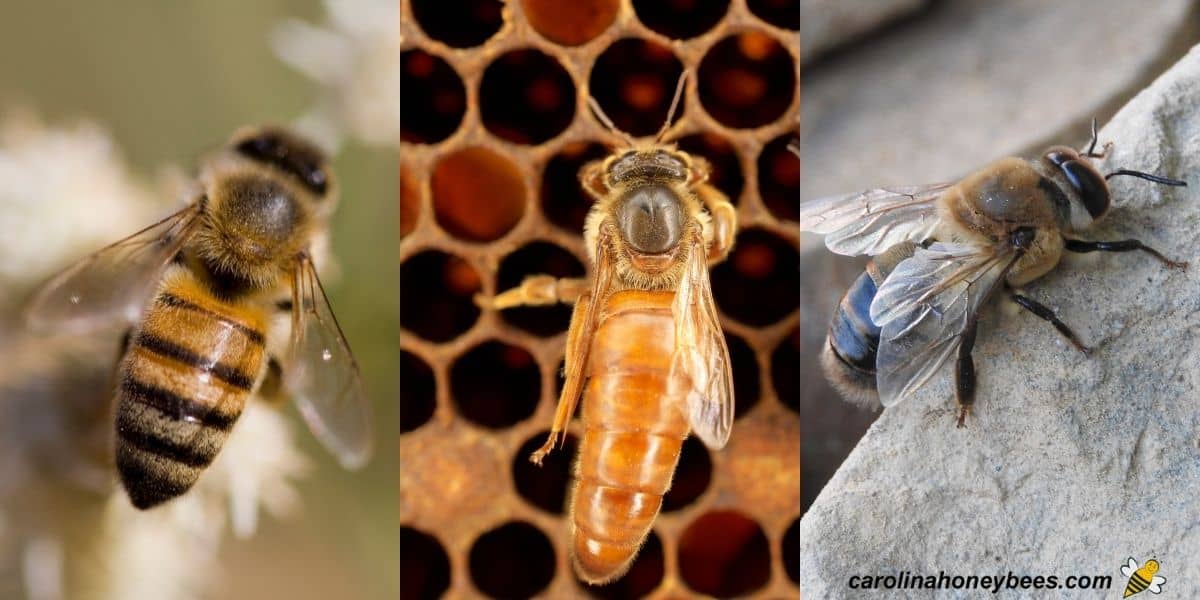
Conclusion
Congratulations on learning about the sweet benefits of beekeeping! By taking up this hobby, you have opened yourself up to a world of relaxation and immune boosting benefits. Beekeeping not only provides a calming effect but also helps increase your physical activity level, leading to better overall health.
As you care for your bees and watch them buzz around their hives, you are able to enter into the fascinating world of these tiny creatures. You will learn about their complex social structures, intricate communication methods, and impressive work ethic. The more you observe and interact with your bees, the more awe-inspiring they become.
In addition to being a great hobby that offers many mental and physical health benefits, beekeeping can be an enjoyable way to produce your own delicious honey. So why not give it a try? With some research and dedication, you can start enjoying all the fruits of your labor while simultaneously caring for these amazing little pollinators. Buzz on over to your local beekeeping supply store today!

Roger Thomas is a seasoned beekeeper and hive architect with a deep-seated passion for sustainable living. His fascination with bees has shaped his professional career, giving him practical and theoretical expertise in bee behavior, colony health, and optimal hive conditions. Roger’s technical skills shine in his bespoke hive creations that cater to the specific needs of diverse bee species, while his sustainable practices promote environmental balance and the wellbeing of the bee population.
As he continues his journey in beekeeping, Roger has become a dedicated advocate for responsible practices and an insightful educator in his field. His posts aim to inspire new beekeepers, underline the importance of sustainability, and showcase the remarkable contribution bees make to our ecosystem. Roger invites you to join him as he delves into the world of bees and the rewarding, honey-sweet art of beekeeping.
